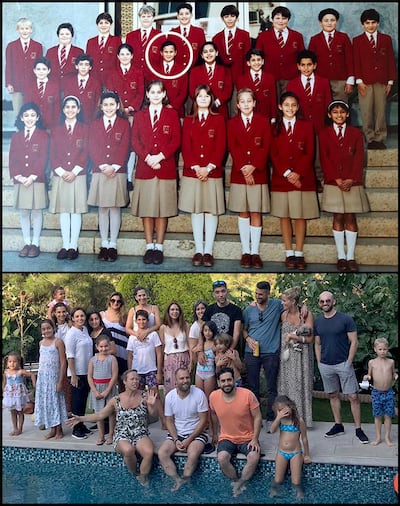In my last column, I wrote of my trepidation as I headed off for my 20-year high school reunion. I am happy to report that the event – a dinner that turned into a four-day extravaganza – was a success. Everyone seemed genuinely happy to reconnect, remember and relive their youth. The “gang” has expanded significantly to include lots of little ones (in some instances, direct photocopies of the children I shared a classroom with).
There was plenty of reminiscing, the odd unexpected confession and reminders of events and conversations that had long slipped from memory. Except for the guy who turned up wearing a “Trump 2020” wristband, my former friends and classmates all seem to have evolved into happy, well-balanced adults.
The whole experience was tinged with nostalgia – which is both a good and a bad thing. With expatriates, nostalgia can be a familiar friend. It is easy – when you are far from home, friends, family and everything that is familiar – to look back with rose-tinted glasses. In times of uncertainty or loneliness, nostalgia can be a well-worn crutch. And the older you get, the easier it is to shroud yourself in it.
My classmates have scattered far and wide – travelling back from the US, the UK, Australia, Serbia and Portugal to attend our reunion. They have families, jobs and lives that are now completely disconnected from Cyprus, where we all went to school together. So I was acutely aware, at various points during the weekend, that it is extremely unlikely we will ever all be in the same place at the same time again. And we will certainly never be 18 again.
The dictionary defines nostalgia as "a sentimental longing or wistful affection for a period in the past". It is happiness tinged with loss – and it demands an acceptance that you can only move forward in life, not backward. But it is also a positive thing. Studies show that nostalgia, for the most part, centres on happy experiences – family holidays, weddings, the birth of children and grandchildren, and that even seemingly minor social encounters can become a source of longing, if they make a deep enough impression. Either way, you can only feel it if you have a bank of happy memories.
“People don’t tend to be nostalgic about financial rewards, materialistic pursuits, vanity strivings or individualistic priorities,” Clay Routledge, professor of psychology at North Dakota State University, writes in an article for the Institute for Family Studies. “In other words, nostalgia focuses the mind on what is most important for the good life: family, close friends, community, and the rituals and traditions that help preserve a social and cultural fabric.”
“Across a number of studies, we have observed that after engaging in nostalgic reflection, people feel more socially valued, loved, socially confident and optimistic about being able to form and maintain close relationships,” says Routledge, who has been studying the psychology of nostalgia for nearly 20 years.
So it can be empowering. You just have to make sure that it does not mutate into regret. As I had to remind myself many times over my reunion weekend, you can remember the past fondly, but it is still the past.



